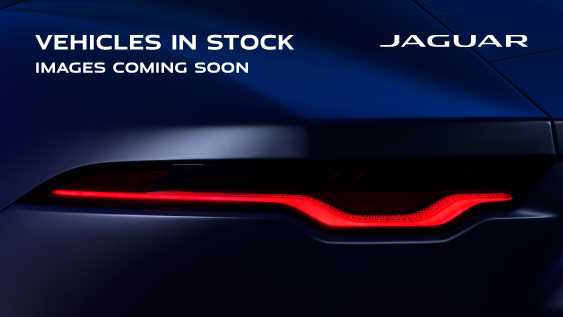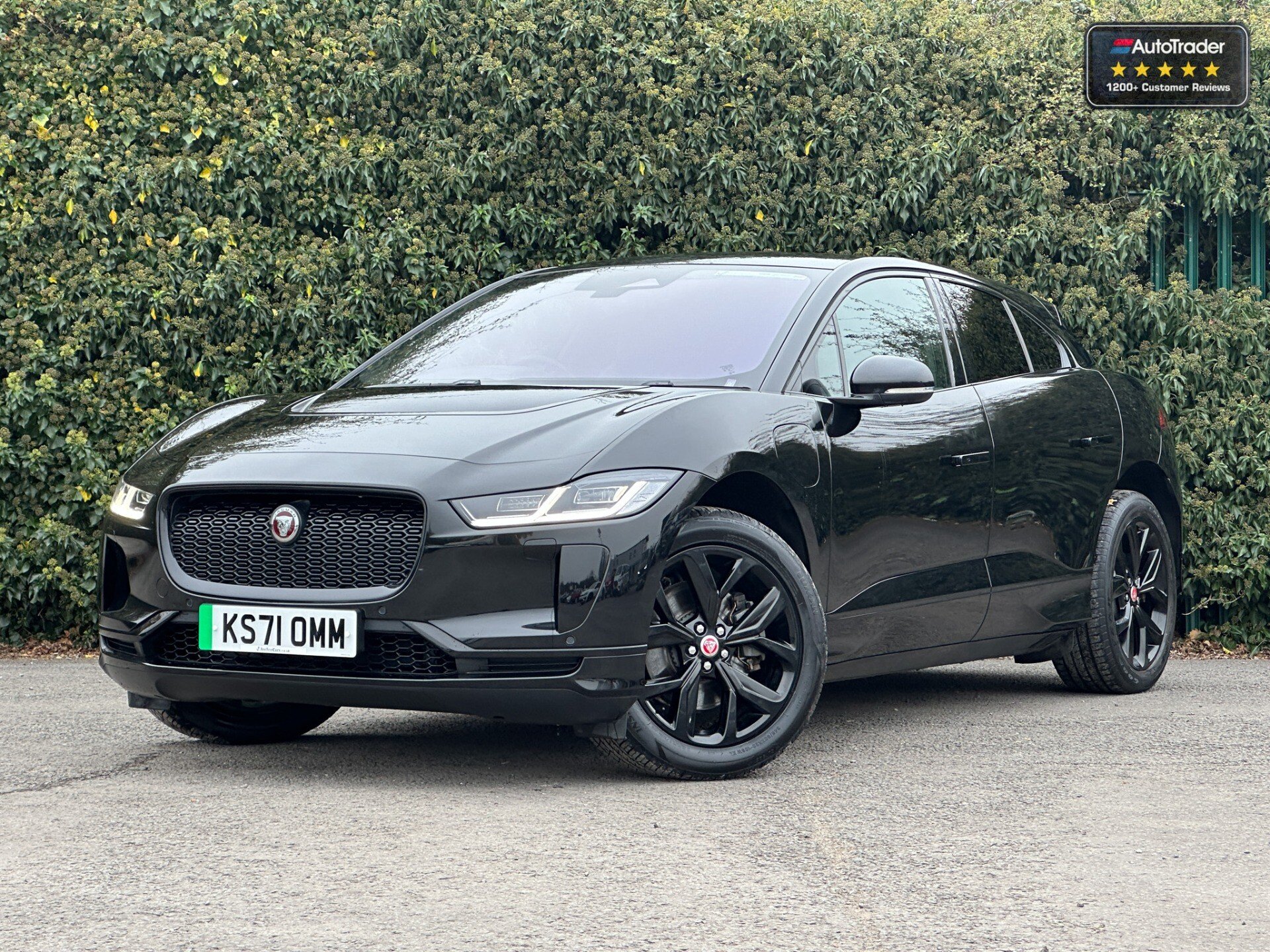Used Jaguar I-Pace for sale: everything you need to know
Jaguar hasn’t always been at the cutting edge of new technology, but when it comes to premium electric cars the Jaguar I-Pace got in there admirably early, making its debut in 2018. There weren’t many choices at the time if you wanted a quick, luxurious EV - outside of the obvious Tesla options - but the I-Pace fit the bill perfectly.
It was also a good car, which helped, and despite many more cars hitting the market since, the I-Pace remains one of the better EVs to drive. Better still, you can now find used I-Paces on the market for less than the price of most new electric superminis.
The Tesla Model S (or the taller Model X) were obvious I-Pace rivals on the Jaguar’s launch but since then models like the Audi e-tron and Mercedes-Benz EQC have also hit the market, while talented but less prestigious models like the Hyundai Ioniq 5 and Kia EV6 can also be found for used I-Pace money.
Should you buy a Jaguar I-Pace?
Since the Jaguar I-Pace launched we’ve seen cheaper electric cars, EVs that go further on a charge, and certainly EVs that are quicker. But it’s a mark of how well-developed the I-Pace was that it remains one of the better EVs to drive, and that driving experience is one reason you might consider a used I-Pace as your next car.
Another reason is that like a lot of older SUVs, prices have really tumbled off a cliff in the last couple of years. That means it’s eminently possible to find an I-Pace for under £30,000, and that’s the kind of money that some manufacturers are expecting you to spend on a new electric supermini.
The I-Pace arrived in 2018 and other than its handsome looks (better on larger wheel designs, but big wheels do knock tens of miles off its official 285-mile range), its trump card was a truly Jaguar-like driving experience. That means strong performance, eager steering, nicely balanced handling, and a comfortable ride quality over most surfaces.
A long wheelbase also means ample passenger space, and the boot’s large too - though unlike some rivals, the Jaguar’s ‘frunk’ - the storage area under the bonnet, where you’d find an engine in a combustion car - is disappointingly small, useful only really for the car’s charging cables. The interior looks and feels good though and while not the best on the market, the infotainment system has improved over time.
When the I-Pace launched, you could only really count the Tesla Model S and Model X among its rivals, but since then the Audi e-tron and Mercedes-Benz EQC have joined the market, while the BMW iX is another recent arrival. One you might not have considered is the Kia EV6, which is very similar in size to the I-Pace and also cuts a sporty form on the road, while offering similar range.
A Jaguar I-Pace not for you? We've got 1000s of used cars for sale to suit all budgets and needs.
What’s the best used Jaguar I-Pace model to buy?
The good news is that you won’t have to spend ages choosing between different powertrain options, because there’s only one in the Jaguar I-Pace. That cuts your decision-making down to the car’s trim levels, and as is increasingly the case, we’d be perfectly happy recommending the S (later R-Dynamic S) as it’s already well-equipped straight off the showroom floor. There’s a secondary benefit too though, in that on the smallest wheels, it’s also the most efficient and therefore has the best range, going a good 25 miles further than the top-spec 400 Sport.
Used Jaguar I-Pace range and performance
- Jaguar I-Pace EV400: The I-Pace uses a pair of 200PS electric motors (one for the front wheels, one for the rear wheels) for a combined 400PS output. Performance is identical regardless of trim level, with a 4.8-second 0-62mph time, and a range of between 260.8 and 285.6 miles (WLTP) depending on trim level - larger wheels impact the range of the higher-spec cars.
What used Jaguar I-Pace trim levels are available?
The current Jaguar I-Pace range is split between four trim levels, though these have changed slightly over time so you may find cars on the market whose specification differs from the cars shown below. As befits a premium electric SUV though, even the basic R-Dynamic S is well-equipped, and since all versions use the same two-motor drivetrain, there is no performance benefit to choosing a higher-spec model - it’s all in the details.
- The Jaguar I-Pace R-Dynamic S gets LED headlights, 19-inch alloy wheels, leather sports seats, a power tailgate, a 10-inch touchscreen with Apple CarPlay and Android Auto, and bright exterior trim.
- The Jaguar I-Pace R-Dynamic SE also has LED headlights but with a distinctive daytime running light (DRL) layout, and moves up to 20-inch alloys. Other equipment includes configurable cabin lighting, a dual touchscreen layout, wireless phone charging, and a black exterior pack.
- The Jaguar I-Pace R-Dynamic HSE gets different headlights again with matrix LEDs, a different 20-inch alloy wheel design, a panoramic roof, 16-way adjustable heated and cooled front seats, a Meridian 3D sound system, and a head-up display.
- The Jaguar I-Pace 400 Sport upgrades to enormous 22-inch alloy wheels, electric air suspension with adaptive dynamics, and 14-way adjustable ‘performance’ seats.
Used Jaguar I-Pace dimensions and boot size
The Jaguar I-Pace’s dimensions are:
- Length: 4682mm
- Width: 1895mm (without mirrors)
- Height: 1565mm
The Jaguar I-Pace’s boot size is:
- 577 litres
- 1453 litres with the rear seats folded (to roof)
- 27 litre frunk
Used Jaguar I-Pace road tax
No surprises here - as an electric vehicle, the Jaguar I-Pace is currently completely exempt from an annual VED or ‘road tax’ charge, though this is expected to change in the future.
How much is it to insure a Jaguar I-Pace?
Insurance is one area of running this electric car that may not be so cheap. Depending on the model year of Jaguar I-Pace you’re looking at, all models fall between groups 47 and 50 - with 50 being the maximum possible group. That’s not unusual for a car of this type though - a BMW iX is also in groups 47 to 50. Models from less prestigious marques with similar performance and range are cheaper though; the Kia EV6 is in groups 34-40.
Read our full Jaguar I-Pace review


